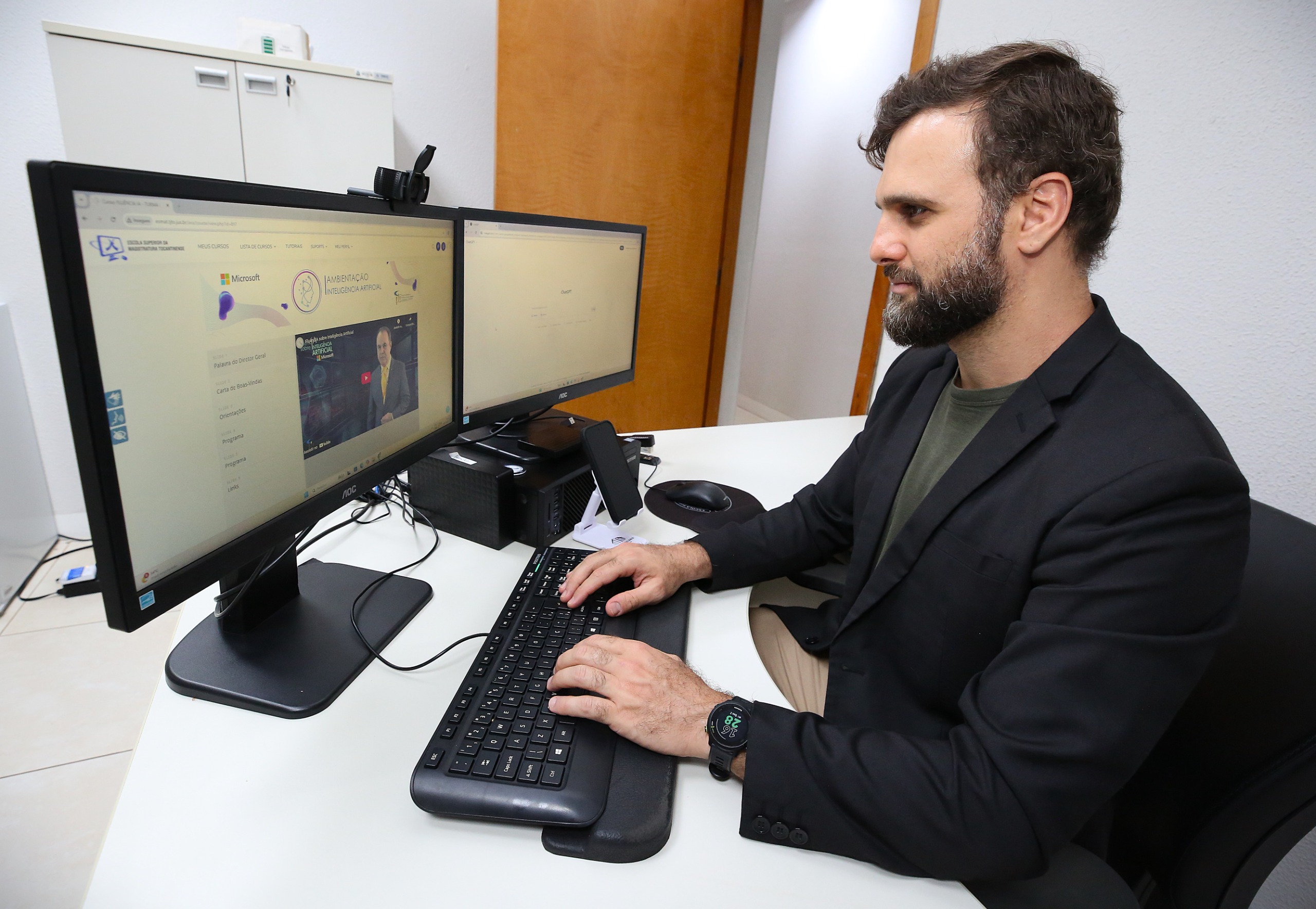
The Superior School of the Judges of the State of Tocantins (Esmat) continues to make progress in its commitment to disseminate technological knowledge and prepare judges and civil servers for the challenges of digital transformation. Next Monday, July 14th, the third class of the FluêncIA (FluencAI - Fluency) course on Artificial Intelligence concludes its activities.
Held in partnership with Microsoft, the program inaugurated a proposal for self-instructional training in the Virtual Learning Environment of the School (VLE), with content ranging from the basic concepts of Artificial Intelligence and Generative AI to practical applications of Bing Chat, the use of Copilot and reflections on ethics and responsibility in the use of new technologies.
During the first semester of 2025, three classes were offered, with hundreds of participants from different regions and areas of activity. The first class took place from March 5th to April 13th; the second, from April 14th to May 23rd; and the third class, initially scheduled until July 4th, had its timetable extended to July 14th, allowing for the completion of evaluative activities.
The training has the general coordination of Justice Marco Villas Boas, general director of Esmat, and the technical coordination of Ana Beatriz de Oliveira Pretto, executive director, who highlight the strategic role of the initiative in democratizing digital culture in the Judiciary of the State of Tocantins.
Testimonials
The testimonies show the relevance of the subject and the impact on the professional routine. For Judge Rosa Maria Rodrigues Gazire Rossi, the training represented “a watershed”. In her statement, she emphasized that
“the FluêncIA (FluencAI – Fluency) training is necessary for every law practitioner in the world today, and its transformative impact also affects the Judiciary, as it demonstrated, in a didactic way, that through a reliable production base, it is possible to improve the efficiency and speed of the judicial process”.
Luciana Alves, a civil server at the Domestic Violence Court in the city of Palmas, said that she is still working out how to incorporate AI into her day-to-day work. “I thought it was a very interesting course for people who don't have any knowledge in this area, like me,” she said.
According to Adriana Cavalcante Jácome, a secretary to the Court in the District of Xambioá, the experience was enriching. "The clear and accessible approach to the content allowed me to better understand the practical applications of Artificial Intelligence in the context of public service and Justice. The course was very well structured, with current and relevant topics, and contributed significantly to broaden my vision of the technological transformations underway," she said.
Agamenon Aires C. Júnior, a civil server in the District of Dianópolis, also highlighted the didactic nature of the course. "The content was presented in a clear, practical and up-to-date way, making it much easier to understand concepts that I thought were complex in AI. The course broadened my understanding of the impact of Artificial Intelligence on the institutional environment and it was an undoubtedly valuable training for those looking to prepare for the current and future challenges of public service”.




